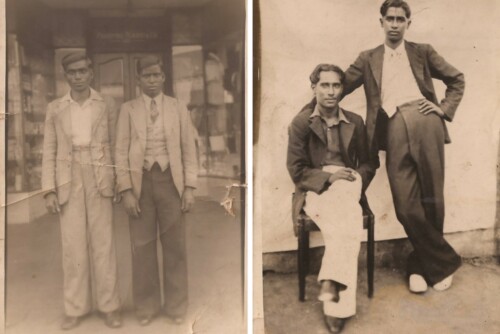Labor and Life
The concept of labor is an extremely important one for understanding the workings of capitalism, and in particular the structure of exploitation under capital inherent in the production of profit or surplus value and the social divisions comprising a class society. Labor exploitation refers to the theft of surplus labor-time, and therefore of surplus value, through what appears to be a practice of fair exchange (the laborer is paid less than the worth of the product he makes, which the capitalist sells to realize profit). Much of the thinking about this process of the production of value and capitalist accumulation had been confined to the labor process within industrial production (the factory) or what is known in the West as Fordist production. Long before thinking about post-Fordist production, and postindustrial capitalism, many feminists had interrogated this theory and criticized it for its marginalization of the sphere of reproduction, embodied by what used to be called “women’s work,” now known as domestic work. As I mentioned earlier, feminists pointed out that what appeared to be a site of mere reproduction of the worker (the household subsistence activities to sustain the life of labor) was in fact another site for the expropriation of surplus value. While women’s work appears, from the point of view of capital, to have no role in the production of surplus value or profit, by being a force of production not only of the worker’s basic life but also of the very subsistence of the laboring class as a whole (by growing food, clothes and seeing to other needs of the workers, including psychic, emotional, sexual needs, as well as producing future workers), women’s work contributes hidden surplus values to the formal capitalist process (in the form of the extension of the wage, thus enabling capital to continuously “cheapen” labor, that is, to reduce the value of workers and their labor).
The so-called feminization of labor—which is nowhere better exemplified than in the Philippine economy, which has relied on female workers in its export manufacturing and domestic service as well as tourism and sex industries since the 1970s, and is now completely dependent on a largely female overseas labor force for its dollar remittances—this worldwide phenomenon, the feminization of labor, has in part spurred the belated rethinking of the concept of labor that is currently taking place in the West (along with the financialization of capital and the practices of production in the New Economy, comprised of IT industries and speculation). What is now acknowledged is that what used to be considered merely reproductive activities (in contrast to productive labor) are in fact productive of value. Indeed, housework, sex work, affective work, and care work are now profitable global industries, which demonstrates that what used to be hidden sources of value or invisible labor (hidden in the guise of natural forces, such as the maternal and sexual “natures” of women, or couched in racist categories, such as slave and colonial labor) and thereby freely appropriated, are now directly subsumed by capitalist industries. Work that appears to have no material product in the form of a tangible commodity nevertheless produces surplus values that can be accumulated as forms of wealth (economic capital) as well as forms of symbolic, social, and cultural value. Left thinkers such as Michael Hardt and Antonio Negri, and other Italian Marxists, drawing on this longstanding feminist work, view this phenomenon of what they call “immaterial labor” (“labor that produces an immaterial good such as service, knowledge, or communication”) as characteristic of contemporary global capitalism. And they see this evidenced in the rise of the care and service-oriented industries as well as the knowledge, information, and communication industries in the so-called postmodern global economy. The burgeoning call-center industry attests to this subscription of Philippine labor as “immaterial labor,” combining affective and cognitive labor in the production of profit for multinational corporations, but also—as in the hospitality industries of the past and in the current domestic and luxury-care services of the present (including hotels, restaurants, hospitals, spas, nail and beauty salons, etc.)—in the production of bodily well-being and life values for a privileged class.
Feminists are skeptical about calling this form of labor “immaterial,” as their own analyses of the longstanding work of women have shown us the corporeal costs and consequences of domestic and care work, as well as the very material conditions of violence in which women workers now find themselves as formal labor in the global service industries. 1 In my own work, I’ve written about the violent conditions of overseas Filipina domestic workers, in which racial difference is inscribed on their bodies, not as a matter of mere prejudice, but as a matter of creating differences in personhood or humanity, which at once results from and enables their objectification as natural resources to be exploited by labor recruiters, the Philippine state, and employers. Racially and sexually devalued through this difference, which is inscribed on their bodies through many kinds of violence (and epitomized by women’s so-called vulnerability to rape and other acts of sexual violation and coercive possession, as well as supported by state and church control of women’s sexual reproductive capacities), disenfranchised Filipina women perform the reproductive labor necessary for the well-being and maintenance of their employers, thereby contributing to their employers’ surplus “value” (which is economic and social) for capital, over and above their own apparent cheap, disposable value or non-value (as reflected in their wages and in their treatment as less than human).
While there are many theoretical issues to disentangle and elaborate upon here (including no less than a rethinking of the category of labor, which is part of the focus of my new book), I want to focus on a few issues that have particular salience for feminist cultural and political analysis. The first is the issue of “labor-time” as the conventional substance of value, that which is stolen from the worker as surplus value. In the model of exploitation in industrial capital, labor-time that is productive of value is confined to the time spent in the production of the commodity. What the condition of domestic labor shows, however, is that it is not any specific amount or quantity of labor-time that is appropriated from the domestic worker; rather, it is her whole bodily being, as a being-for-others, that is appropriated to maintain and enhance the lives of others. Equated with the naturalized forms of reproductive work she embodies (this gendered labor inseparable from her gendered body), she is appropriated as bodily life, as “life-time” spent in the serving and servicing of others.
I would like to propose this concept of “life-time,” which draws on but also expands the concept of “labor-time” beyond its masculine, industrial parameters to include gendered forms of labor (women’s reproductive work, but also serf or peasant work, or non-modern labor subject to non-economic expropriation), as a useful concept for reckoning with the diverse, unrecognized life-producing capacities that people exercise in the creation of value as wealth and power, which only a small minority of the world’s population is able to accumulate and enjoy. Just as women produce themselves as forms of normative femininity to meet the requirements of the industries that exploit their gendered creative capacities (whether as light-manufacturing workers, department store ladies, nurses, maids, or sex workers), people engage in a whole range of socially organized subjective, bodily, cognitive, psychic, and affective practices (that we sometimes refer to as “culture”) in the very production of their own lives and beings as particular kinds of labor, and in the production of their material conditions, including their social relations, which are the very conditions of capitalist exploitation. The notion of “life-times” refers to these social and cultural capacities and practices, and the heterogeneous temporalities within which these concretely operate from the standpoint of people’s lifeworlds, rather than those activities contained within the homogeneous temporality of abstract labor from the standpoint of capital.
We might think of “life-times” as “living labor,” a concept Marx used to denote “labor which is still objectifying itself, labor as subjectivity.” For Marx, this “living labor” exists “not as an object, but as activity; not itself value, but as the living source of value.” The political relevance of this concept lies in Marx’s understanding of this aspect of labor as precisely constitutive of its revolutionary potential. We cannot, however, fully recognize the “living labor” of people’s practices, much less the political potential of such practices, if we do not understand them from the perspectives of the lifeworlds within which they concretely operate. Here, subalternist critiques of the categories of labor and value, as exemplified in the work of Gayatri Spivak and Dipesh Chakrabarty, are quite enabling for thinking about the heterogeneity of the cultural systems of value and meaning at work within universal capitalist processes, cultural systems that might appear to be “outmoded” or mere “superstructural” ways of life within a capitalist mode of production, and yet are in fact intrinsic to its process of accumulation—indeed, that serve as unrecognized forces of production.
As I’ve already suggested, social differences regulated by categories of gender, race, sexuality, culture, and nationality are essential to the process of capitalist accumulation to the extent that they serve as technologies of devaluation, necessary to the expropriation of people’s creative powers. These differences structure the division in humanity between disposable, consumable life and privileged, valued life (what Giorgio Agamben has called “bare life” or zoe vs. good life or bios), a division on the basis of which both sovereign power and capitalist value are founded and which, like the traditional category of labor, rests on the distinction between the reproductive, non-political sphere and the sphere of productive, political life. Attempts to abide by the forms of equivalence based on the capitalist value system will necessarily depend on the active and often violent production of differences as differences of value, and therefore on the devaluation of whole ways and modes of life that are not valorized by this order.
My forthcoming book, Things Fall Away, builds on the set of concepts I’ve outlined (life, labor, value) to develop a theory of social experience as a form of creative or living labor that is subject to expropriation. 2 As I’ve said, expropriation does not refer to the theft of any specific quantity of surplus labor-time. Rather, it refers to the subsumption of the immeasurable time of social cooperation, which feminists and third world intellectuals have shown to be indispensable to the productivity of labor and therefore to the creation of wealth and power. What Marx understood about land and other natural resources—that they are the fundamental means of people’s life production and self-production, which, through processes of force as well as capitalist development, both social and technological, they are continually dispossessed of—Marxist feminists have understood to be true of culture, social cooperation, subjectivities, and sexual/affective and reproductive women’s work. Demonstrating that capitalist accumulation has historically and continuously depended on the “primitive accumulation” of “non-capitalist” resources and work, embodied in the naturalized forces comprised of the activities and personhoods of women, colonized natives, and slaves, this thinking builds on Rosa Luxemburg’s insight about how in the phases of late-nineteenth and early-twentieth-century imperialism, capital needed non-capitalist strata in order to reproduce and expand beyond the phases of simple profit. What was beyond Luxemburg’s purview is the fact that “non-capitalist strata” continue to be created in, and as, outmoded, backward, or traditional forms of personhood, cultural capacities, practices of social cooperation, and ways of life through new and renewed structures of dispossession and exclusion. That is to say, these seemingly non-economic spheres of life and forms of social experience have become continuing sources of appropriable value. They are in effect productive forces.



